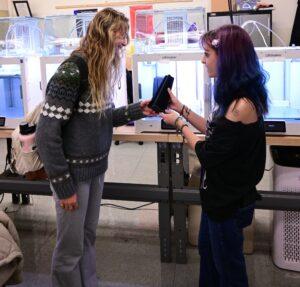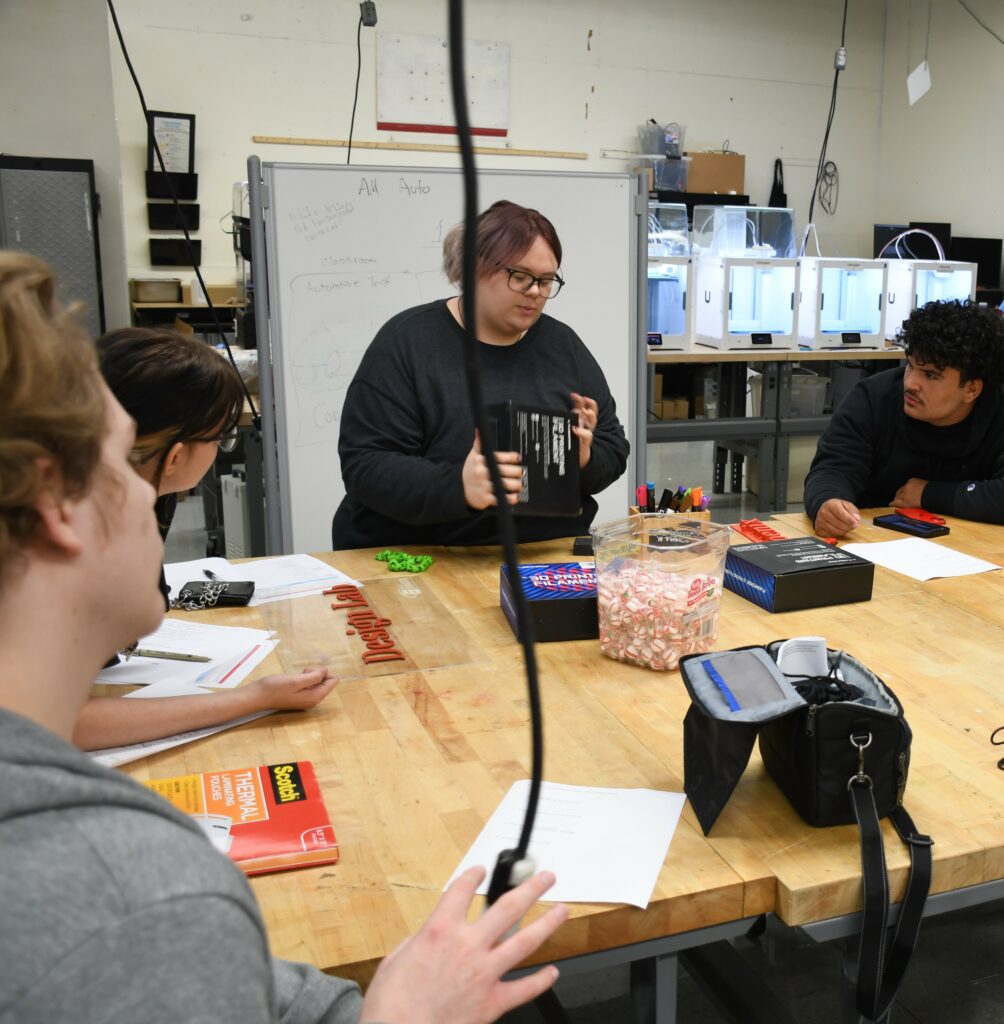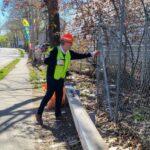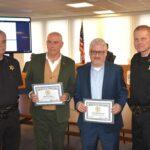
PORT EWEN- The Ulster BOCES Career & Technical Center’s Phoenix Academy has become a hub for fostering empathy, a quality not commonly associated with activities like 3D printing or designing signage. However, at the Phoenix Academy, empathy isn’t just a concept–it is also actively shaping the school environment and enhancing student engagement.
The 33 young professionals enrolled in the Phoenix Academy are participating in a unique educational experience. Half of their day is spent in specialized project-based learning aligned with their interests, while the other half is dedicated to career-track courses. This approach integrates interdisciplinary training and skills developed in the Phoenix program into the students’ chosen career paths.
One notable skill young professionals are learning and applying is the “empathy interview” method. Originating from educational giants like the Stanford d.School of Design and High Tech High, empathy interviews involve asking open-ended questions to gather stories and experiences, which inform problem-solving ideas.
During empathy interviews, Phoenix program students engage with various members of the school community, gather insights, research solutions, and collaborate with potential partners. They then present proposed solutions, gather feedback, and refine their ideas through processes like storyboarding and the creation of mock-ups.
For instance, when Ulster BOCES Aviation and Drone program instructor Angelica Dickerson sought support for her students participating in the SkillsUSA competition, the Phoenix team assisted by designing and printing buttons and stickers. Additionally, they utilized their knowledge of 3D design to teach the future aviators how to use Tinkercad (a 3-D modeling program) to print gliders, providing a hands-on lesson in aerodynamics.
Young professionals from both classes recently met up on a mild February day to see their designs go airborne. “Using Tinkercad, we were able to test and physically grasp the many differences between different model planes,” Dickerson explained. Students used slingshot-type launchers to send their glider designs across the parking lot. “Our next step will be to redesign our planes to see if we can get even better results,” she added.
Another collaboration involved creating custom signage for the Automotive Technology program at the request of instructor Jamie Lucks. After conducting empathy interviews to understand the program’s needs, the Phoenix team designed signage reflecting the desired messaging and focused on fostering community pride.
Young professionals from the Phoenix Academy also recently conducted empathy interviews with school administrators to enhance table displays for recruitment events. Their innovative ideas, like inflatable couches and solar battery packs, impressed school officials.
“It is a much different approach that students are not accustomed to,” Phoenix Academy instructor David Salvestrini said. “It takes time to get used to listening, sharing, and designing with these higher level-thinking skills. We don’t often have these projects in traditional classrooms.” They are, however, the exact skills that business and industry leaders are looking for in prospective employees.
Zofia Sokolowski, a Grade 12 student from Highland High School who attends the Phoenix Academy, said she recently found clarity for her internship project by conducting an empathy interview with her employer. “It was not clear what I should be focusing on,” she said. “After I conducted an empathy interview, I learned what they really needed and am confident about what I could do for them. Now I know I will be doing social media, blogging, product shoots, and more.”
The Phoenix Academy also offers students the opportunity to earn skill badges, showcasing their proficiency in various areas, from technical skills like photography and additive manufacturing to soft skills like self-care and self-direction. These badges not only validate their skills but also adorn a wall, celebrating the young professionals’ achievements and creating a supportive environment.
Sokolowski added that she believes the badges will be beneficial in highlighting industry skills on her resume. “Not a lot of kids learn these skills in traditional schools,” she said.
For many young professionals, the Phoenix Academy experience is transformative, boosting their confidence, Salvestrini pointed out. “They are walking into a classroom where they may know only a few people, and it’s so impressive to see them flourish,” he said. He recalls the immense sense of pride he had when one individual, who has an anxiety disorder that often leaves them unable to speak in certain social situations, presented in a classroom filled with new faces–and presented with confidence.
For more information about the Phoenix Academy, an alternative education program offered at Ulster BOCES, please visit www.ulsterboces.org.








